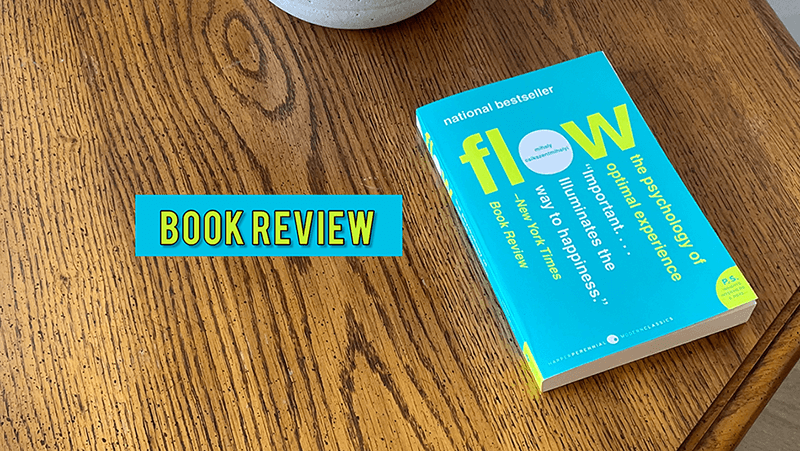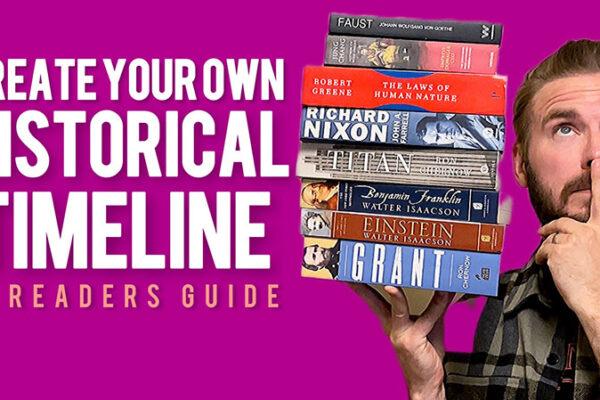
About the book – Flow: The Psychology of Optimal Experience
Mihaly Csikszentmihalyi spent most of his life studying what makes people enjoy what they are doing and concluded that the overall fulfillment people experience in life correlates with how much time they spend in activities that produce what he called “flow”.
Flow is a state of complete involvement with what you are doing; you are one with the task at hand. There is no ego, you are totally focused and present. Hours might pass without you noticing it.
In this book you will learn what components make up flow, how to create more of it in your own life, and how to handle stress and other inhibitors of flow states.
Csikzenmihaiyli mixes research, anecdotes and practical advice in what turned out to be one of my favorite reading experiences this year.
8 components of Flow:
- A Clear objective.
- Immediate feedback I.e when you play the wrong note on the piano.
- What you do is in balance with what you can do. I.e challenged but not overwhelming
- Concentration/focus.
- Presence – Not thinking about anything else…
- You are in control
- A loss of ego/ not worrying about yourself. A feeling of transcendence.
- Time is warped – Time adapts to your experience instead of the other way around.
Video review of Flow
Notes about Flow
📝 We need to stop thinking about the brain as a tool for problem-solving and instead think of it as an organ of enjoyment. If we do this we will uncover a world full of opportunity for Flow.
📝 “One of the most generally reported Flow experiences around the world is simply reading. Reading good books.”
📝 “It’s not what you do but how you do it.”
Flow and creative routine.
—- ✍️ How to avoid being stuck ✍️ —-
Discipline and routine are two words that you might not associate with creative living. But finding a routine that gets your creative juices flowing each day, in a predictable manner, is exactly what is needed if you don’t want to get stuck in a creative rut.
.
—- ✍️ Rousseau’s creative warm-up ✍️ —
Rousseau went out to his courtyard, took off his wig and let the sun hear his head. He sat there until his brain was warmed up (literally) and his thoughts started to flow. Then he returned to his study to write.
.
—— ✍️ Kant’s creative warm-up ✍️ —
Philosopher Emanuel Kant used to sit in his study and stare at the sun reflecting off the spherical shapes of a church spire a few blocks down the road until his mind was totally blank from this hypnotic activity. This routine was a prerequisite for him to hatch his revolutionary ideas.
.
—- ✍️ My review writing process ✍️ —
The night before writing a book review I read through my notes. This allows relevant information about the book to marinate in my unconscious mind a bit before it’s time to write. The morning after I set a timer for 30-40 minutes and tell myself that I need to have a full first draft of the review ready by the time the alarm goes off. It can be horrible quality, but it has to be done. This process prevents overthinking. When I’m done with the first draft I spend some time moving things around, trimming some fat, and polishing the text.
⭐️ TAKEAWAY:
Turn everything into a game!
If you want to be able to enjoy mundane activities more, then turn them into a game. If the task is not challenging enough, then make it so by adding rules or obstacles. If the activity has a fussy goal then define your own goal.
One of the most important mindsets that I’ve adopted in my lifetime is to see life as a game. One of the major attracting factors of video games is that they provide a lot of autonomy while still providing clear objectives, immediate feedback from your actions and constant character development. Life doesn’t always do this.
Once you look at life as a vast role-playing game, with missions, character specs and skill points to be gained you might enjoy it more! (and maybe lose interest in video games as a bleak imitation of the game of life.)
This book made me take this concept even further and look at individual tasks as mini games in the grand game of life. I’m currently experimenting with this new mindset.
⚖️ VERDICT:
I thought I wouldn’t get much out of this book as I’ve seen Csikzenmihalyi work referenced in so many other books, but I was wrong. A was also wrong about the nature of this book: I thought it would be very technical and theoretical, but it was accessible and practical. One of the foundational books for anyone seeking out The Good Life. It made it into my hall of fame of books: The Great Books List!
.
⭐️ ⭐️ ⭐️ ⭐️ ⭐️ out of 5
Find more great reads on my book reviews page and the Great Books List
.What mindsets help you find fulfillment with everyday tasks and activities?




2 thoughts on “Flow by Mihaly Csikszentmihalyi | Book Review”